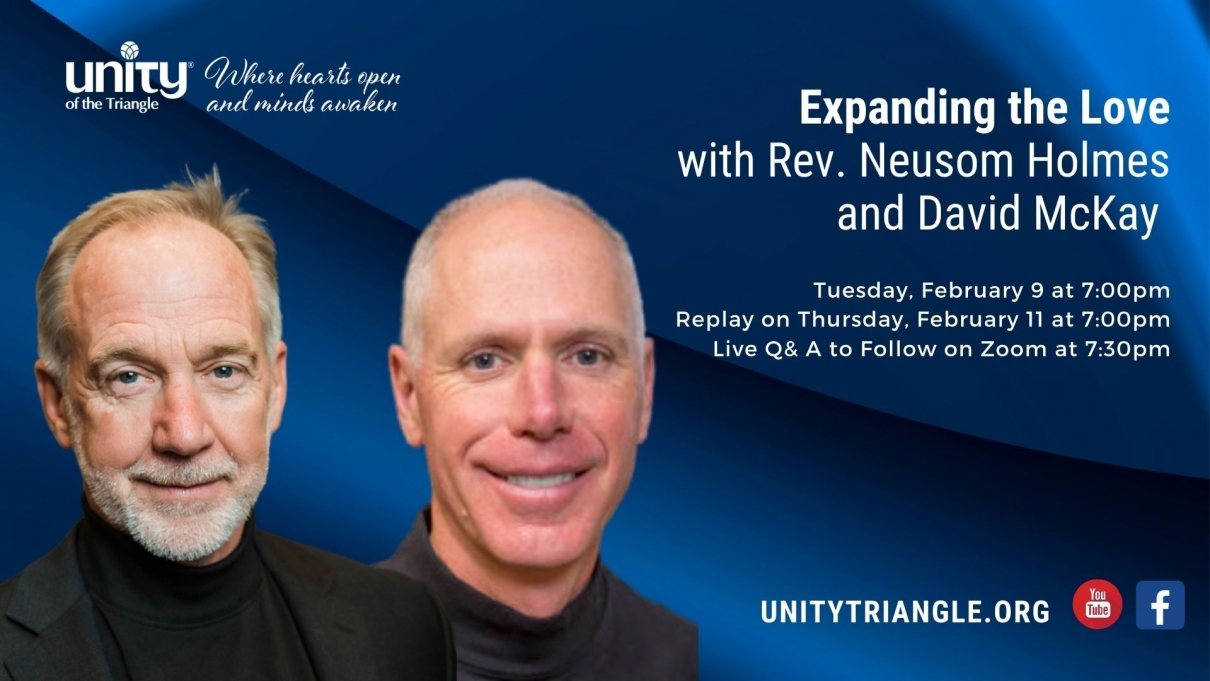Expanding the Love: An Interview with David McKay
David McKay, author of The One Open Door, lived in silence as he trained as a Zen Buddhist Monk for 18 years. He was taught a way of combining an ancient Buddhist understanding and practice with modern psychological tools. He promotes Awareness practice in the form of retreats, workshops, online meditation groups, and spiritual coaching and counseling.
WATCH THE INTERVIEW HERE OR JOIN THE LIVE CHAT ON FACEBOOK OR YOUTUBE
What is the nature of Mind? What is Buddha Mind?
Buddha Mind is the mind that is uncontaminated by social conditioning. The flip side is Conditioned Mind where we assume a separate self that has a history, preferences, opinions, and wants control of life. Buddha Mind is more easily described by what it isn’t than what it is. It is not separate, has no preferences or opinions, and does not need to control outcomes. It just is. Everything is Mind, everything is intelligence which comes in the form of a human, animal, tree, or rock. So our human mind which has an individual perspective is the same as the intelligent Mind that is causing everything to be. Being in the Buddha Mind is when there is no difference between the human mind and the intelligent Mind that is creating everything.
Charles Fillmore, co-founder of Unity, used the word Mind in place of God and taught that we share the same intelligence as the Divine. This idea is common to Unity and Buddhism.
Is Buddha Mind like the witness state?
If by “witness” we mean pure Awareness, then yes. But not in the sense of someone observing. Buddha Mind does not operate as a separate entity and transcends separateness.
How do we know if we’re in Buddha Mind?
A huge part of spiritual practice is answering this question. It can be very subtle. We are taught to believe that we are the conditioned mind and it can be difficult to step back and understand that our beliefs, assumptions, and perceptions of the world are an illusion. It takes a lot of work and paying attention over time to notice a mind functioning as a self and a mind functioning beyond a self.
When functioning as a self, we suffer, meaning we are operating outside of Life and we feel a sense of separateness, disfunction, sabotage, confusion, and are swept away by emotions. Whereas when functioning in the Buddha Mind, there is a flow state where things tend to align and work.
We can ask “What is the result of my thinking”? Is my thinking taking me to a place of connection with all that is or a place of separation and division?
Is there a feeling associated with being in Buddha Mind?
We cannot know in our human minds that we are centered, in awareness, in Buddha Mind. Our intellect doesn’t understand that state. There may be an energy, sense of connection, or guidance,
Spiritual practice consists of trying to answer the question of “Who am I?”. In the midst of living as a human self with conditioned mind, who am I underneath that? It’s somewhat of a mystery that takes us on an alluring exploration without a final answer.
How do we understand “me” within the oneness of Divine Mind?
When we let go of the conditioned self built upon false assumptions, we can feel into our Authentic Nature or Authentic Self. It’s unique to each of us and yet is also simultaneously the same as Life as it unfolds. It can be described as we are a wave in the ocean of Divinity. We cannot understand it intellectually, but we can experience it.
What are the benefits of exploring Buddha Mind?
Anything unhappy that we experience as human beings comes from believing that the conditioned mind is reality. When we feel we’re not good enough, not meeting expectations, feel lonely, or self-sabotage. Sometimes even when we have successful experiences, we may be trying to compensate or cover up ideas of unworthiness. If we let go of our conditioned mind, we don’t have to live in a world where we think something is wrong with us or we are not good enough. We don’t have to compensate for imagined flaws. Living in the Buddha Mind allows us to just be who we are, inherently worthy. Life is easy because it takes care of itself without us needing to control anything. Life unfolds clearly and perfectly in a flow state when we are in Buddha Mind.
The futility of Buddha Mind
When feeling the flow state of Buddha Mind, it’s easy to want to hold onto it and stay in that state. The conscious thought of wanting to hold on to it causes us to lose it. The goal is to be in this awareness without trying to own it or hold onto it. Spiritual practice will take us into a state of oneness with all that is. The perspective and desire of wanting to hold onto that state is the separate self which by nature takes us out of it. When we act from a separate self, we remove ourselves from the unfolding of the flow state of Life.
One cannot “know” Buddha Mind or get to the flow state by intellect. It must come by allowing the experience to happen.
We all have a fundamental need to be who we really are, one with Buddha Mind, Divinity, Source. And when we are not able to be in that space, it’s distressing. We sometimes try to compensate for our suffering with worldly accomplishments or accumulating money or material things, but in the end still end up feeling empty.
Practices to achieve Buddha Mind
Two ways to achieve Buddha Mind that really compliment each other are:
Via Positiva – Being in the now, feeling into the present moment, looking for guidance, being present and open to what is here now.
Via Negativa – Seeing everything that is not authentic and letting it go. What is left is your true essence. One tool is to watch our thoughts. Most of our thoughts are not us thinking, but conditioned mind talking to us. Stepping back from the conditioned mind can allow us to be in present awareness.
Spiritual practice is a lifelong process, a journey without completion, but one well worth the energy and attention.





